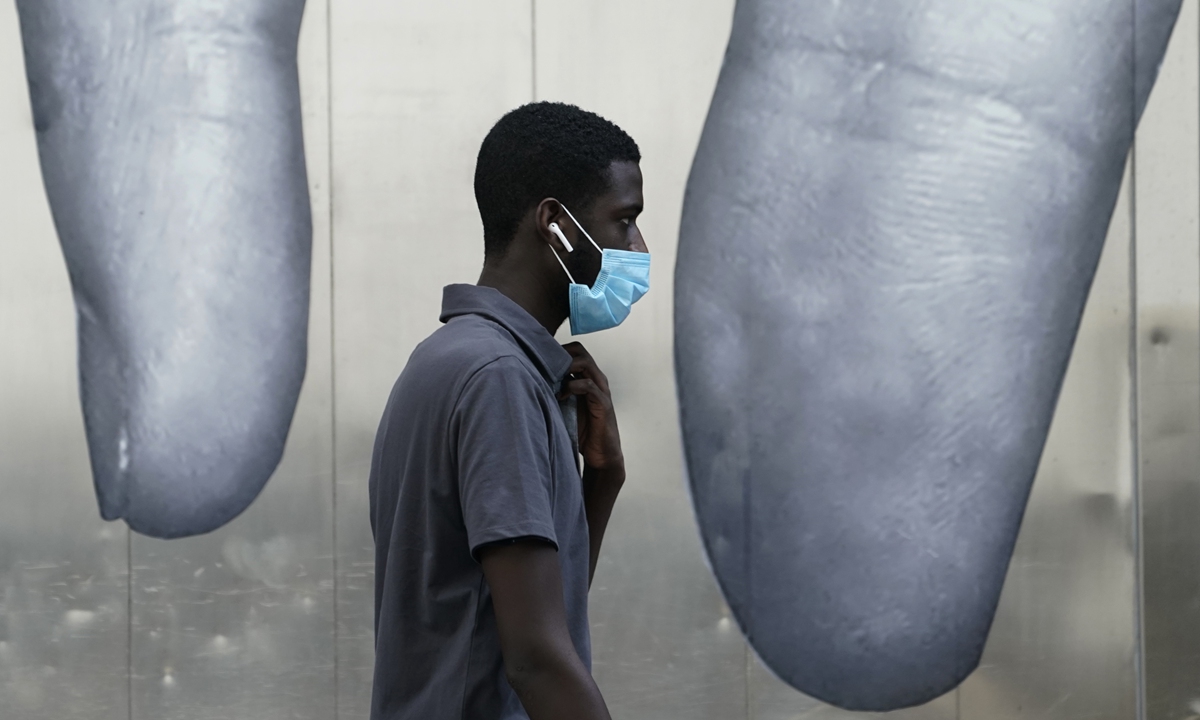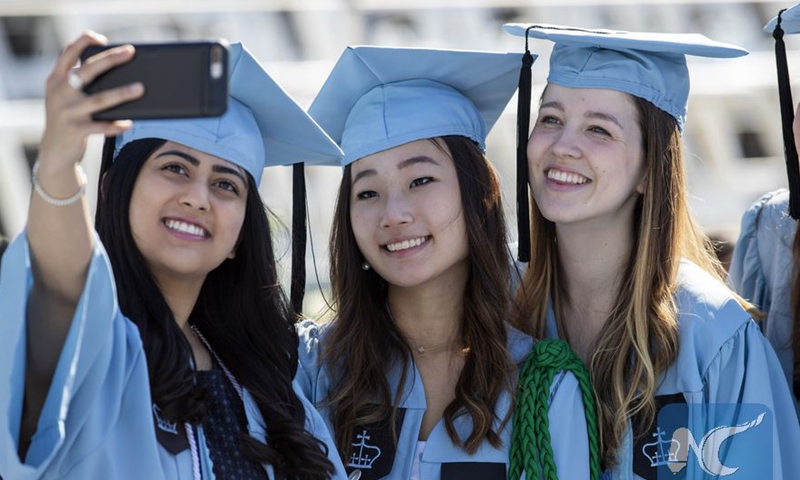https://www.worldometers.info/coronavirus/#countries.
` `
The US hit a record high of 543,928 daily new COVID-19 cases on Tuesday. The number of new deaths reached 3,023 the same day. For two consecutive days, new COVID-19 cases in the US have exceeded 500,000. Behind each startling number is an unfortunate live and family. As the epidemic hits new records again and again, Washington is ending 2021 in an extremely somber way, and its fiasco will go down in history.
`
The previous record of new COVID-19 cases was a figure of 294,015 recorded on January 8, one day after the confirmation of Joe Biden's presidential election victory by the Congress. After taking office, Biden made control of the epidemic a top priority and launched a series of prevention and control measures. Many thought that the record on January 8 would be the peak, and even the most pessimistic person at that time probably couldn't have imagined that a new record would be reached by the end of the year. The White House has a new president, but the epidemic is raging even more widely. In 2021, the US still presents the world with chaos, disorder and contradiction in its fight against the epidemic.
`
Los Angeles Times columnist Michael Hiltzik wrote in his article, entitled "Farewell to 2021, the stupidest year in American history," that "instead of unity and immunity, this year has brought us stupidity and insanity on an unimaginable scale." He argues that COVID-19 is surely "the focus of the most obtuse and ignorant public reactions and state and local policy responses to any crisis in American history." Some media outlets commented that a sense of powerlessness over political confrontation, social rifts and rampant anti-intellectualism has further dissipated expectations of a united response to the epidemic.
`
As the country with the most advanced technology and top comprehensive strength, the US has the strongest financial and medical resources, moreover, it only has a population of 329 million people. But two years since the COVID-19 epidemic broke out, over 810,000 people have died of the pandemic. Under the so-called democratic system, nobody is held accountable for such a huge loss of human lives. People don't even know who is responsible for fighting the pandemic under the US President. "Human" is left out of human rights: such an absurd logic just happened in a modern society.
`
People found that the death toll has a much smaller impact on politicians in Washington than the number of votes and the ups and downs of the stock market. In developed countries with advanced medical conditions and better welfare systems, we have constantly seen cruel scenes of social Darwinism: The poor are facing a higher risk of being infected and witnessing a higher death rate. Some medical institutions have even given tacit permission for "selective treatment" of impoverished patients or those of ethnic minorities.
When a large number of ordinary families are caught up in financial difficulties due to the epidemic, the assets of billionaires have risen significantly. According to a recent report by Business Insider, 52 members of the US Congress were found to have concealed their technology, pharmaceutical or other stock trades, violating the STOCK Act. They were suspected of taking advantage of the turmoil of the epidemic to make a fortune out of national crisis through engaging in insider trading.
`
What's currently happening in the US is a humanitarian catastrophe and a human rights disaster. But those "human rights preachers" are either at a loss about what to do, or they just turn a blind eye to it. Apart from being symbolically mentioned on occasional commemorative ceremonies, the misfortunes of the broken families and individuals have been collectively neglected. The "human" has been left out of US' "human rights," that's why the economy has been put above human lives and saving the stock market is considered more important than curbing the epidemic.
`
In 2021, under the scourge of the COVID-19 pandemic, the US has defeated the US, and the true nature of the "human rights defender" has been exposed. We feel sympathy for the American people who have suffered miserably from the pandemic, while having a more sober understanding of the hypocrisy of the US-style human rights















 Politeness rules: Japanese players bowing towards fans after a rugby match in Scotland. Japan is a country where people are polite and friendly – and where everything is done by the book. Deviating from the norm is seriously frowned upon. – Reuters
Politeness rules: Japanese players bowing towards fans after a rugby match in Scotland. Japan is a country where people are polite and friendly – and where everything is done by the book. Deviating from the norm is seriously frowned upon. – Reuters


